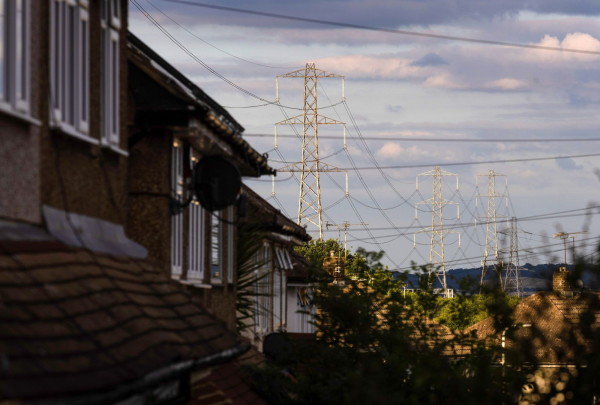

Energy bills for the typical UK household are set to reach £4,266 annually in 2023, jumping more than 250 per cent since the beginning of this year.
Consultancy Cornwall Insight said today (August 9) many energy suppliers are under financial pressure against the backdrop of “unprecedented” market conditions, with some currently making a loss.
It said a further change to the price cap would help to curb the threat of another flurry of energy suppliers exiting the market, the cost of which would ultimately be picked up by consumers.
The latest predictions, which were based on Ofgem's new methodology, “won’t go unnoticed by many”, including clients, according to IFAs.
“It’s another eye-watering increase and a blow for many individuals and families across the country who are already financially stressed,” said financial adviser at Morgan Williams & Co Daniel Williams.
“My concern for consumers is the ever-moving floating target. That however much they have already adjusted their lifestyles to date, in some cases only just allowing them to pay their bills, the pain hasn't really even started yet.”
Williams regularly talks to his clients about rising energy prices, as this topic forms a growing part of his firms’ advice conversation.
“In my own family, we are fortunate to still be in a two-year energy contract, so we won’t feel that pain until July 2023. But that doesn't mean we won't feel the effect of the rises.
“For example, our two-year-old daughter attends a local nursery, and at some point their prices will have to go up to reflect the increase in their bills.”
In general, Williams said his clients are well insulated from the price rises, but for some, their financial plans may require some adjustment.
“The rises won't go unnoticed by many,” he said. “It's important that we all help where we can.”
As well as offering some adviser time pro-bono help for individuals, Williams’ firm has made - and intends to continue making - a handful of financial donations to local food banks over the past year.
A number of IFAs have also stepped in to help employees, offering pay rises, one off ‘top-ups’, and staggered payments to off-set inflation.
Meanwhile, specialist income protection provider Holloway Friendly has announced it will offer members the ability to pause their insurance and payments for up to six months.
‘Wealthy millionaires’ could feel pinch
With the majority of IFAs’ clients holding anywhere between £100,000 and millions in assets, it would be easy to discount this bracket of consumers from the impact of energy price cap rises.
But Perceptive Planning managing director Phil Billingham said even “our ‘wealthy millionaire[s]’ could certainly see their living costs rise” by as much as 10 per cent on fuel alone.
“If you assume that energy costs have gone up by around £300 per month, and that net maximum interest rates are 2 per cent, then to absorb that increase would require an additional £180,000 to be placed on deposit. So that’s not going to happen,” said Billingham.
“Whilst it's easy to regard someone with £1mn of investments as wealthy, in reality, they are on a net income of probably £35,000 per annum from that, at best.
“So our ‘wealthy millionaire’ could certainly see their living costs rising by 10 per cent just on fuel, without the other costs we are seeing.”
For some, Billingham said this cost could be absorbed. “For many, something will have to give. That could be holidays, eating out or presents for the family,” he explained.
“So are these people going to starve or endure real hardship? No, most certainly not. But are they worried, especially for family and friends who may not be so fortunate? Then most certainly yes, they are.”
For many of IFAs’ clients, investments have fallen in value this year meaning their need for income has increased.
Many are also living in homes which are not very heating efficient, will be trying to look after less well-off families, and many will have created their wealth through prudent saving and living within their means for years and decades, Billingham explained.
“These pressures are and will be creating a great deal of anxiety for many, despite the fact they, actually, will probably be ok.”
Income protection becomes more important
Some advisers reckon now is a good time for clients to consider insuring their income, particularly with wages set to catch up with inflation next year.
“As the increasing energy bills puts further strain on households, this will have not only a financial impact, but a mental one as well,” said Natasha Percy-Baxter, adviser at PercyBaxter Wealth Management.
“One way of mitigating that stress is to ensure clients have suitable protection in place. By setting up income protection, if they are unable to work, it removes the stress of what happens if they can't cover the bills.
“Also, by indexing this protection, it ensures that the level of cover increases with inflation. This is something I have recommended to clients as the foundation of their financial plan and to provide peace of mind.”
Percy-Baxter said it is also worth discussing with clients the prospect of saving money into different savings pots, dedicating one specifically for the expected increase in bills and start paying into it now.
“An option for clients that are really struggling is to check whether their energy supplier offers any support with paying bills,” Percy-Baxter explained.
Some energy suppliers, she said, will offer cash grants to those struggling to cover their energy expenses
“The most important fact is that it is better to be proactive than reactive: take steps today to help your clients prepare for tomorrow.”
‘Energy price cap shouldn’t affect clients’
Some in the industry are confident advisers’ clients will not feel the spike in energy costs.
Intermediary head for London and the South East at 7IM, Chris Justham said: “The energy price cap shouldn’t affect clients….if they have set a plan and are working to it.”
For a client withdrawing income, part of the annual review process is to establish what has changed and whether the plan is still suitable, Justham pointed out.
If outgoings are going to be higher, he said , by virtue of non-discretionary expenditure ticking up, then the plan is adjusted accordingly.
“This doesn’t mean wholesale changes to strategy, it means a two-way conversation about how someone feels and revisiting the structure in place to provide them with the metronomic income they desired to see if it can deliver what was promised.”
If a client’s lifestyle has to be compromised or questions around the longer-term success of their plan become common-place, he added, then the plan was arguably wrong at outset.
“There is a lot going on in the world right now and plenty of opportunities to worry. But one of the sources of this anxiety shouldn’t be your investment portfolio.”
ruby.hinchliffe@ft.com, jane.matthews@ft.com & sally.hickey@ft.com



